PROJECT SUSTENANCE

If your Grange has held a program, completed a project, conducted service or otherwise worked to meet the challenges under the three pillars of Project Sustenance - food security, community and individual resilience, and self-sustainability - we want to hear about it!
 "Made in Our Town" Gift Boxes
"Made in Our Town" Gift Boxes
Create and sell gift boxes featuring locally made products, such as handmade soaps, jams, or crafts. These boxes can be marketed for holidays, birthdays, or welcome gifts for new residents. Profits can support the Grange or a community improvement project, while the initiative promotes local artisans and producers.
Resources Needed: Boxes, packing materials, and partnerships with local producers. A Grange hall can serve as the assembly and pickup location. Without a hall, partner with a local store or café as the distribution point. Volunteers can curate items, assemble boxes, and manage orders.
Does your Grange already do a program like this? SUBMIT YOUR INFORMATION HERE.
Would you Grange like to do a program like this and would like some guidance? Request assistance here.
 Leadership Through Civic Art Projects
Leadership Through Civic Art Projects
Engage the community in a public art project, such as painting a mural or creating sculptures that reflect the community’s values or history. Assign leadership roles to participants to manage tasks like fundraising, design coordination, or volunteer recruitment. This combines leadership development with community beautification.
Resources Needed: Art supplies, permission from local authorities for public installations, and a project plan. A Grange hall can serve as a project planning hub or may even be the site of the arts project. Without a hall, public spaces like parks or schools can work. Volunteers with artistic or project management experience can guide participants and oversee the project’s progress.
Does your Grange already do a program like this? SUBMIT YOUR INFORMATION HERE.
Would you Grange like to do a program like this and would like some guidance? Request assistance here.
 Buy Local Awareness Week
Buy Local Awareness Week
Working with your local Chamber of Commerce or governing body, designate a week dedicated to buying local, and get local businesses on board to host open houses, special promotions, and community talks about the economic benefits of local spending. The Grange may want to focus on agri-businesses and farms and partner with the Chamber or others to take lead with other businesses. Each day can focus on a different sector, such as “Farmers Market Monday” or “Shop Small Saturday.”
Resources Needed: Event schedules, promotional materials, and partnerships with local businesses. A Grange can host kickoff events or talks at their hall. Without a hall, partner with central community spaces. Volunteers can manage daily events, promote activities, and track the week’s success.
Does your Grange already do a program like this? SUBMIT YOUR INFORMATION HERE.
Would you Grange like to do a program like this and would like some guidance? Request assistance here.
 Leadership Role Shadowing Program
Leadership Role Shadowing Program
Create a shadowing program where aspiring leaders can spend a day observing local officials, business owners, or nonprofit directors. This hands-on experience provides valuable insights into leadership roles and decision-making processes in various settings.
Resources Needed: A schedule of shadowing opportunities, participating mentors, and orientation materials for participants. A Grange hall can serve as a coordination hub. Without a hall, shadowing can be coordinated remotely. Volunteers can help match participants with mentors and follow up to gather feedback.
Does your Grange already do a program like this? SUBMIT YOUR INFORMATION HERE.
Would you Grange like to do a program like this and would like some guidance? Request assistance here.
 How to Lobby Effectively
How to Lobby Effectively
Offer training on lobbying at the local and state levels, teaching participants how to prepare presentations, understand legislation, and meet with elected officials.
Resources Needed: Policy guides, role-playing scenarios, the State or National Grange legislative director or seasoned member that has previously effective lobbying experience and a meeting space. A Grange hall is ideal. Without a hall, libraries or municipal offices can host. Volunteers can act as mentors during mock lobbying exercises.
Does your Grange already do a program like this? SUBMIT YOUR INFORMATION HERE.
Would you Grange like to do a program like this and would like some guidance? Request assistance here.
 Community Storytelling Nights
Community Storytelling Nights
Host storytelling events where participants share personal experiences about advocating for change or overcoming challenges. These stories can inspire others to take action and become community leaders.
Resources Needed: A stage or microphone and promotional materials. A Grange hall is ideal. Without a hall, libraries or coffee shops can host. Volunteers can coordinate participants and assist with setup.
Does your Grange already do a program like this? SUBMIT YOUR INFORMATION HERE.
Would you Grange like to do a program like this and would like some guidance? Request assistance here.
 Leadership Book Club
Leadership Book Club
Start a book club that focuses on books about leadership, advocacy, and community organizing. Discussions can provide insight into practical strategies for building stronger communities.
Resources Needed: Books or e-books, discussion guides, and meeting space. A Grange hall is ideal. Without a hall, libraries or private homes can host. Volunteers can moderate discussions and share related resources.
Does your Grange already do a program like this? SUBMIT YOUR INFORMATION HERE.
Would you Grange like to do a program like this and would like some guidance? Request assistance here.
 DIY Emergency Water Filtration Kits
DIY Emergency Water Filtration Kits
This class teaches participants how to assemble water filtration kits using materials like charcoal, sand, and buckets, providing clean water in emergencies. The focus is on affordability and practicality.
Resources Needed: Charcoal, sand, buckets, and filters. A Grange hall with a demonstration area is ideal. Without a hall, schools or libraries can host. Volunteers with environmental or water safety expertise can guide participants.
Does your Grange already do a program like this? SUBMIT YOUR INFORMATION HERE.
Would you Grange like to do a program like this and would like some guidance? Request assistance here.
 Backyard Beekeeping Classes
Backyard Beekeeping Classes
Description: Backyard beekeeping classes teach individuals how to start and maintain beehives in their own yards. These classes cover topics such as hive setup, bee behavior, honey production, and the ecological importance of pollinators. Beekeeping is a valuable skill that contributes to local food production and biodiversity while also providing participants with honey, beeswax, and other bee-related products.
Resources Required: Granges will need to provide access to a garden or outdoor area where participants can observe live hives or demonstrations. Beekeeping equipment, such as hives, suits, smokers, and tools, will be necessary. Local beekeepers or experts in the field can lead the classes, teaching both the basics and advanced aspects of beekeeping. Granges should provide instructional materials, such as guides on hive management, bee health, and honey harvesting. Volunteers with beekeeping experience can assist participants with hands-on learning. Granges can partner with local agricultural groups or environmental organizations for expertise and resources.
Does your Grange already do a program like this? SUBMIT YOUR INFORMATION HERE.
Would you Grange like to do a program like this and would like some guidance? Request assistance here.
 Repair Cafés
Repair Cafés
Description: Repair cafés are community-driven events where people bring in broken household items such as electronics, clothing, furniture, or appliances to be repaired by volunteers with the necessary skills. These events encourage repair rather than disposal, reducing waste and teaching individuals valuable repair skills. Repair cafés foster sustainability, community collaboration, and resourcefulness.
Resources Required: Granges will need a large, open space, such as the Grange hall, with tables and workstations for volunteers and participants. Tools and supplies for common repairs—such as screwdrivers, pliers, sewing machines, and electrical testers—will be required. Volunteers with expertise in various repair areas, such as electronics, sewing, and carpentry, should be recruited to assist participants. Educational resources on basic repair techniques and how to troubleshoot common issues should be provided. Granges can promote the event through local media, social media, or flyers to encourage community participation and attract volunteers.
Does your Grange already do a program like this? SUBMIT YOUR INFORMATION HERE.
Would you Grange like to do a program like this and would like some guidance? Request assistance here.
 Clothing and Food Swap Events
Clothing and Food Swap Events
Description: Clothing and food swap events allow community members to exchange clothing and non-perishable food items they no longer need. This reduces waste and gives individuals access to essential items without having to spend money. The events can foster a spirit of cooperation and Individual & Community Resilience by encouraging sharing and supporting each other’s needs.
Resources Required: Granges can host these events in their halls or partner with local schools, churches, or community centers. Volunteers will be needed to organize the collection and sorting of food and clothing items, as well as to manage the exchange during the event. Local grocery stores, clothing retailers, or community members may donate items to help stock the event. A promotional campaign will help attract attendees, with flyers or social media posts to spread the word and encourage participation. If needed, a system for tracking donations and ensuring that everyone receives a fair exchange can be set up.
Does your Grange already do a program like this? SUBMIT YOUR INFORMATION HERE.
Would you Grange like to do a program like this and would like some guidance? Request assistance here.
 Youth Food Ambassadors
Youth Food Ambassadors
Description: Youth food ambassador programs empower young people to become advocates for healthy eating and food security within their communities. These ambassadors can organize events, conduct food drives, or lead educational initiatives about nutrition and sustainable agriculture. The program provides youth with leadership skills while promoting healthier eating habits in the next generation.
Resources Required: Granges will need to develop a training program for youth ambassadors, which could include lessons on nutrition, food justice, gardening, and public speaking. Youth ambassadors will need access to resources like educational materials, posters, and supplies for organizing events. Volunteers with experience in youth mentorship, nutrition, or agriculture can assist with the program. Schools, libraries, or community centers can be used to host meetings or events. Granges should also ensure there is a support system for the ambassadors to help them develop their ideas and projects, with guidance from adult mentors.
Does your Grange already do a program like this? SUBMIT YOUR INFORMATION HERE.
Would you Grange like to do a program like this and would like some guidance? Request assistance here.
 Garden Tool Drives
Garden Tool Drives
Description: A garden tool drive collects donations of gardening tools, such as shovels, rakes, hoses, and gloves, to support community members who want to start gardening but cannot afford the necessary equipment. The tools can be distributed to individuals, families, or community gardens to help grow food sustainably and improve food security.
Resources Required: Granges will need a location to collect the donated tools, such as the Grange hall or a community center. Volunteers are needed to organize the tool donations, clean and repair the tools as necessary, and distribute them to community members in need. Partnerships with local garden centers or hardware stores can help secure donations or discounts on tools. If storage space is needed, collaboration with local organizations can provide assistance. A campaign to spread awareness about the drive, such as flyers or social media posts, will help increase donations.
Does your Grange already do a program like this? SUBMIT YOUR INFORMATION HERE.
Would you Grange like to do a program like this and would like some guidance? Request assistance here.
 Seed Libraries
Seed Libraries
Description: A seed library allows community members to borrow seeds for gardening, encouraging self-sufficiency and biodiversity. Participants grow their own food, save seeds from their harvest, and return them to the library for others to use. This initiative supports local food security by fostering sustainable gardening practices, especially in communities where access to quality seeds might be limited.
Resources Required: Granges will need a dedicated storage space for seeds, such as cabinets or containers for organization. Volunteers with gardening experience can assist with seed collection, sorting, and organizing. Granges can partner with local garden clubs, seed companies, or farmers to acquire seeds. Additionally, educational materials about seed saving and gardening techniques can be provided. If the Grange does not have a physical hall, collaborating with libraries or community centers to house the seed library is an option.
Does your Grange already do a program like this? SUBMIT YOUR INFORMATION HERE.
Would you Grange like to do a program like this and would like some guidance? Request assistance here.
 Low-Cost Community Dinners
Low-Cost Community Dinners
Description: Low-cost community dinners are a great way to bring people together while addressing food insecurity. These events provide affordable meals, often focusing on healthy options that meet the dietary needs of a diverse community. These dinners are especially useful for low-income or senior members who may struggle to cook for themselves or find affordable meal options.
Resources Required: To organize these events, Granges will need a kitchen, dining space, and volunteers to prepare and serve the food. If a Grange does not have a kitchen, local community centers, churches, or schools may offer their facilities. Donations from local grocery stores, farmers, and food suppliers can help cover the costs. Volunteers can assist with cooking, serving, and cleaning up after the events. A strong community outreach effort, such as flyers, social media posts, or word of mouth, is essential to ensure attendance, especially in rural areas where reaching members can be a challenge.
Does your Grange already do a program like this? SUBMIT YOUR INFORMATION HERE.
Would you Grange like to do a program like this and would like some guidance? Request assistance here.
 Fruit Tree Planting Drives
Fruit Tree Planting Drives
Description: Fruit tree planting drives provide a long-term, sustainable source of fresh fruit for communities. This initiative encourages community members to participate in planting fruit trees on public land, school grounds, or other shared spaces, offering an ongoing supply of nutritious food. These programs also help green the community and improve the local ecosystem.
Resources Required: Granges will need to secure fruit tree saplings, tools for planting (such as shovels and gloves), and volunteers to assist with the planting. Partnerships with local nurseries, garden centers, or agricultural extension services can provide discounted or donated trees. If your Grange has land, you can host planting events on-site, or collaborate with schools, parks, or churches to plant trees in public spaces. Additionally, a watering and maintenance plan for the newly planted trees will need to be established, and local volunteers can help care for the trees.
Does your Grange already do a program like this? SUBMIT YOUR INFORMATION HERE.
Would you Grange like to do a program like this and would like some guidance? Request assistance here.
 Leadership Role Shadowing Program
Leadership Role Shadowing Program
Create a shadowing program where aspiring leaders can spend a day observing local officials, business owners, or nonprofit directors. This hands-on experience provides valuable insights into leadership roles and decision-making processes in various settings.
Resources Needed: A schedule of shadowing opportunities, participating mentors, and orientation materials for participants. A Grange hall can serve as a coordination hub. Without a hall, shadowing can be coordinated remotely. Volunteers can help match participants with mentors and follow up to gather feedback.
Does your Grange already do a program like this? SUBMIT YOUR INFORMATION HERE.
Would you Grange like to do a program like this and would like some guidance? Request assistance here.
 Support Groups for Caregivers
Support Groups for Caregivers
Description: Support groups for caregivers provide a safe and empathetic space for individuals who care for family members or friends with chronic illnesses, disabilities, or age-related conditions. These groups offer emotional support, share caregiving strategies, and connect caregivers with local resources. By providing a community of care and understanding, these groups help caregivers maintain their own well-being and build resilience in the face of caregiving challenges.
Resources Required: Granges will need a quiet, comfortable space, such as a meeting room at the Grange hall or a local community center, to hold the support group meetings. Experienced facilitators or social workers with a background in caregiving or mental health should lead the sessions. Granges should provide informational resources on caregiving tips, local resources, and self-care strategies. Volunteers with experience in caregiving or social services can assist with group facilitation and offer additional support to caregivers. Local health organizations or caregiving support groups may also collaborate to provide expertise and resources for the group.
Does your Grange already do a program like this? SUBMIT YOUR INFORMATION HERE.
Would you Grange like to do a program like this and would like some guidance? Request assistance here.
 Wellness Fairs
Wellness Fairs
Description: Wellness fairs bring together local health professionals, fitness experts, nutritionists, and wellness organizations to provide the community with access to free health screenings, wellness advice, and resources. These events can include flu shots, blood pressure checks, health consultations, fitness demonstrations, and nutrition counseling. Wellness fairs promote preventative care, healthy living, and a greater understanding of how lifestyle choices impact overall health.
Resources Required: Granges will need access to a large space for hosting wellness fairs, such as the Grange hall, community center, or outdoor event space. Booths or tables for health professionals and vendors will be necessary, as well as medical equipment for health screenings (e.g., blood pressure cuffs, glucose meters). Volunteers will help manage the event, register attendees, and assist with organizing wellness activities. Granges should work with local healthcare providers, fitness centers, nutritionists, and other wellness experts to sponsor booths or offer free services. Advertising materials, including flyers, social media posts, and email newsletters, will be important to attract attendees.
Does your Grange already do a program like this? SUBMIT YOUR INFORMATION HERE.
Would you Grange like to do a program like this and would like some guidance? Request assistance here.
 Home Safety Inspections
Home Safety Inspections
Description: Home safety inspection workshops teach participants how to conduct safety checks in their homes, ensuring they meet safety standards and prevent accidents. These inspections can cover electrical systems, fire safety, water heaters, smoke alarms, and other common household hazards. By addressing these issues, participants can create a safer living environment for themselves and their families.
Resources Required: Granges will need to collaborate with local safety experts or inspectors to lead the workshops and offer guidance. A space such as the Grange hall or community center will be necessary for participants to learn the steps involved in a home safety inspection. Essential materials for demonstrations, such as fire extinguishers, smoke detectors, and electrical tools, will be required. Granges should provide educational handouts with home safety tips, inspection checklists, and DIY safety fixes. Local fire departments, insurance companies, or home improvement stores may offer sponsorship or assistance with tools and materials.
Does your Grange already do a program like this? SUBMIT YOUR INFORMATION HERE.
Would you Grange like to do a program like this and would like some guidance? Request assistance here.
 Budget Cooking Competitions
Budget Cooking Competitions
Description: Budget cooking competitions challenge participants to create delicious and nutritious meals using a limited budget. These events can showcase participants' creativity and culinary skills while emphasizing the importance of cooking on a budget. By focusing on cost-effective ingredients and meal planning, these competitions encourage participants to adopt more affordable and sustainable cooking practices.
Resources Required: Granges will need a large space for cooking demonstrations and competitions, such as a community kitchen or outdoor area with cooking facilities. Participants will need access to basic cooking tools, utensils, and ingredients. Local chefs, nutritionists, or culinary experts can act as judges or mentors during the event. Educational resources such as budgeting tools, meal planning guides, and shopping tips should be provided to participants before the competition. Granges can partner with local grocery stores, farmers' markets, or food banks for sponsorship or ingredient donations.
Does your Grange already do a program like this? SUBMIT YOUR INFORMATION HERE.
Would you Grange like to do a program like this and would like some guidance? Request assistance here.
 Backyard Beekeeping Classes
Backyard Beekeeping Classes
Description: Backyard beekeeping classes teach individuals how to start and maintain beehives in their own yards. These classes cover topics such as hive setup, bee behavior, honey production, and the ecological importance of pollinators. Beekeeping is a valuable skill that contributes to local food production and biodiversity while also providing participants with honey, beeswax, and other bee-related products.
Resources Required: Granges will need to provide access to a garden or outdoor area where participants can observe live hives or demonstrations. Beekeeping equipment, such as hives, suits, smokers, and tools, will be necessary. Local beekeepers or experts in the field can lead the classes, teaching both the basics and advanced aspects of beekeeping. Granges should provide instructional materials, such as guides on hive management, bee health, and honey harvesting. Volunteers with beekeeping experience can assist participants with hands-on learning. Granges can partner with local agricultural groups or environmental organizations for expertise and resources.
Does your Grange already do a program like this? SUBMIT YOUR INFORMATION HERE.
Would you Grange like to do a program like this and would like some guidance? Request assistance here.
 Gardening for Therapy
Gardening for Therapy
Description: Gardening for therapy programs focus on using gardening as a tool to improve mental health and well-being. Participants engage in planting, nurturing, and harvesting plants, which can have therapeutic benefits such as reducing stress, enhancing mood, and fostering a sense of accomplishment. Gardening offers a hands-on way to connect with nature, promote mindfulness, and build resilience by providing an outlet for emotional expression and relaxation.
Resources Required: Granges will need access to a garden space, either onsite at the Grange or at a local community garden, where participants can engage in gardening activities. Gardening tools, soil, seeds, and plants will be necessary for the program. Volunteers with experience in gardening or horticulture can assist participants, offering guidance on planting and plant care. Granges should provide materials on gardening basics, therapeutic benefits, and mindfulness techniques. Collaboration with local nurseries or garden centers may help source materials and plants for the program.
Does your Grange already do a program like this? SUBMIT YOUR INFORMATION HERE.
Would you Grange like to do a program like this and would like some guidance? Request assistance here.
 Repair Cafés
Repair Cafés
Description: Repair cafés are community-driven events where people bring in broken household items such as electronics, clothing, furniture, or appliances to be repaired by volunteers with the necessary skills. These events encourage repair rather than disposal, reducing waste and teaching individuals valuable repair skills. Repair cafés foster sustainability, community collaboration, and resourcefulness.
Resources Required: Granges will need a large, open space, such as the Grange hall, with tables and workstations for volunteers and participants. Tools and supplies for common repairs—such as screwdrivers, pliers, sewing machines, and electrical testers—will be required. Volunteers with expertise in various repair areas, such as electronics, sewing, and carpentry, should be recruited to assist participants. Educational resources on basic repair techniques and how to troubleshoot common issues should be provided. Granges can promote the event through local media, social media, or flyers to encourage community participation and attract volunteers.
Does your Grange already do a program like this? SUBMIT YOUR INFORMATION HERE.
Would you Grange like to do a program like this and would like some guidance? Request assistance here.
 Healthy Cooking Classes
Healthy Cooking Classes
Description: Healthy cooking classes teach participants how to prepare nutritious, affordable meals using whole foods. These classes focus on cooking methods that preserve nutrients, meal planning on a budget, and understanding the benefits of a balanced diet. By providing the skills to cook healthy meals, these classes help build personal resilience and empower individuals to make better food choices for their health and well-being.
Resources Required: Granges will need a kitchen or cooking facilities, such as the Grange hall or local community center, to host the classes. Cooking utensils, pots, pans, and healthy ingredients will be necessary for demonstration and hands-on cooking activities. Experienced chefs, nutritionists, or home cooks can lead the classes, providing tips on cooking techniques, nutrition, and meal planning. Granges should provide recipe cards, shopping lists, and nutrition guides to participants. Local grocery stores, farms, or health food suppliers may offer donations or discounts on ingredients to support the program.
Does your Grange already do a program like this? SUBMIT YOUR INFORMATION HERE.
Would you Grange like to do a program like this and would like some guidance? Request assistance here.
 Personal Budgeting Workshops
Personal Budgeting Workshops
Description: Personal budgeting workshops teach individuals and families how to manage their income, expenses, savings, and debt to achieve financial stability. These workshops typically cover the basics of tracking spending, setting financial goals, creating and maintaining a budget, and building an emergency fund. Participants learn how to make informed decisions that align with their financial goals and improve their long-term financial health.
Resources Required: Granges will need to provide a space for the workshops, such as the Grange hall or community center, where participants can work on their budgeting plans. Instructors with expertise in personal finance—such as financial planners, credit counselors, or accountants—can lead the workshops. Granges should provide materials, such as budgeting templates, financial goal-setting worksheets, and debt reduction strategies, to guide participants through the process. Partnerships with local banks or financial institutions may help sponsor or provide materials for the workshops. Volunteers will assist with the facilitation and helping individuals apply the concepts to their personal situations.
Does your Grange already do a program like this? SUBMIT YOUR INFORMATION HERE.
Would you Grange like to do a program like this and would like some guidance? Request assistance here.
 Winter Garden Projects
Winter Garden Projects
Description: Winter garden projects teach participants how to grow food during the colder months. These projects can include setting up greenhouses, using cold frames, or utilizing techniques like hydroponics to grow vegetables year-round. The goal is to help people extend the growing season, increase food security, and reduce reliance on store-bought produce during the winter months.
Resources Required: Granges will need access to space for greenhouse or cold frame setups, which could be on Grange grounds, at local schools, or in community gardens. Materials needed include greenhouse structures, seeds, soil, and basic gardening tools. Volunteers with expertise in winter gardening can lead workshops on how to set up and maintain the gardens. Local agricultural extension services or greenhouse suppliers may offer support or discounts for the project. Educational materials on winter gardening techniques should be provided to participants.
Does your Grange already do a program like this? SUBMIT YOUR INFORMATION HERE.
Would you Grange like to do a program like this and would like some guidance? Request assistance here.
 Clothing and Food Swap Events
Clothing and Food Swap Events
Description: Clothing and food swap events allow community members to exchange clothing and non-perishable food items they no longer need. This reduces waste and gives individuals access to essential items without having to spend money. The events can foster a spirit of cooperation and Individual & Community Resilience by encouraging sharing and supporting each other’s needs.
Resources Required: Granges can host these events in their halls or partner with local schools, churches, or community centers. Volunteers will be needed to organize the collection and sorting of food and clothing items, as well as to manage the exchange during the event. Local grocery stores, clothing retailers, or community members may donate items to help stock the event. A promotional campaign will help attract attendees, with flyers or social media posts to spread the word and encourage participation. If needed, a system for tracking donations and ensuring that everyone receives a fair exchange can be set up.
Does your Grange already do a program like this? SUBMIT YOUR INFORMATION HERE.
Would you Grange like to do a program like this and would like some guidance? Request assistance here.
 Root Cellar Workshops
Root Cellar Workshops
Description: Root cellar workshops teach participants how to build and maintain root cellars for storing food during the winter months. Root cellars are an effective way to preserve vegetables, fruits, and other perishables by keeping them cool and moist, which extends their shelf life. This is an especially valuable skill in rural areas, where access to fresh produce may be limited in the winter.
Resources Required: Granges will need to collaborate with local construction experts or experienced homesteaders to lead the workshops. Tools and materials for building a root cellar (such as shovels, wood, and insulation materials) will be needed. A suitable location for hands-on workshops and demonstrations is essential, whether at the Grange hall, a local farm, or a participant’s property. Volunteers will help with setting up and facilitating the workshops, and educational materials on how to build and maintain root cellars will be distributed to participants.
Does your Grange already do a program like this? SUBMIT YOUR INFORMATION HERE.
Would you Grange like to do a program like this and would like some guidance? Request assistance here.
 Edible Plant Tours
Edible Plant Tours
Description: Edible plant tours introduce community members to the wild and cultivated edible plants in their area. These tours teach participants how to identify and forage for food in local parks, forests, or backyards. The goal is to increase self-sufficiency by teaching individuals how to gather food from the natural environment.
Resources Required: Granges will need to partner with local foraging experts, botanists, or experienced herbalists to lead the tours. The tours can be held in public spaces such as local parks or nature reserves. Educational materials on edible plants, foraging guidelines, and safety tips should be provided to participants. Volunteers will be needed to assist with organizing and leading the tours. Promotional materials and outreach will help raise awareness and encourage participation.
Does your Grange already do a program like this? SUBMIT YOUR INFORMATION HERE.
Would you Grange like to do a program like this and would like some guidance? Request assistance here.
Garden Tool Drives
Description: A garden tool drive collects donations of gardening tools, such as shovels, rakes, hoses, and gloves, to support community members who want to start gardening but cannot afford the necessary equipment. The tools can be distributed to individuals, families, or community gardens to help grow food sustainably and improve food security.
Resources Required: Granges will need a location to collect the donated tools, such as the Grange hall or a community center. Volunteers are needed to organize the tool donations, clean and repair the tools as necessary, and distribute them to community members in need. Partnerships with local garden centers or hardware stores can help secure donations or discounts on tools. If storage space is needed, collaboration with local organizations can provide assistance. A campaign to spread awareness about the drive, such as flyers or social media posts, will help increase donations.
Does your Grange already do a program like this? SUBMIT YOUR INFORMATION HERE.
Would you Grange like to do a program like this and would like some guidance? Request assistance here.
 Nutritional Education in Schools
Nutritional Education in Schools
Description: Nutritional education in schools helps teach children about the importance of healthy eating and how to make nutritious food choices. Granges can partner with local schools to offer workshops, cooking demonstrations, and interactive lessons about nutrition. These programs aim to equip young people with the knowledge and skills to make healthier food choices, contributing to long-term improvements in the community's overall health.
Resources Required: Granges can partner with local nutritionists, dietitians, or health professionals to lead the educational sessions. Resources needed include educational materials such as brochures, posters, and handouts, as well as kitchen equipment for cooking demonstrations. Granges can help fund the program or secure donations from local businesses to provide ingredients for the cooking classes. Volunteers can assist with organizing the events and assisting in the classroom or kitchen.
Does your Grange already do a program like this? SUBMIT YOUR INFORMATION HERE.
Would you Grange like to do a program like this and would like some guidance? Request assistance here.
 Seed Libraries
Seed Libraries
Description: A seed library allows community members to borrow seeds for gardening, encouraging self-sufficiency and biodiversity. Participants grow their own food, save seeds from their harvest, and return them to the library for others to use. This initiative supports local food security by fostering sustainable gardening practices, especially in communities where access to quality seeds might be limited.
Resources Required: Granges will need a dedicated storage space for seeds, such as cabinets or containers for organization. Volunteers with gardening experience can assist with seed collection, sorting, and organizing. Granges can partner with local garden clubs, seed companies, or farmers to acquire seeds. Additionally, educational materials about seed saving and gardening techniques can be provided. If the Grange does not have a physical hall, collaborating with libraries or community centers to house the seed library is an option.
Does your Grange already do a program like this? SUBMIT YOUR INFORMATION HERE.
Would you Grange like to do a program like this and would like some guidance? Request assistance here.
 Backyard Beekeeping Classes
Backyard Beekeeping Classes
Description: Backyard beekeeping classes teach individuals how to start and maintain beehives in their own yards. These classes cover topics such as hive setup, bee behavior, honey production, and the ecological importance of pollinators. Beekeeping is a valuable skill that contributes to local food production and biodiversity while also providing participants with honey, beeswax, and other bee-related products.
Resources Required: Granges will need to provide access to a garden or outdoor area where participants can observe live hives or demonstrations. Beekeeping equipment, such as hives, suits, smokers, and tools, will be necessary. Local beekeepers or experts in the field can lead the classes, teaching both the basics and advanced aspects of beekeeping. Granges should provide instructional materials, such as guides on hive management, bee health, and honey harvesting. Volunteers with beekeeping experience can assist participants with hands-on learning. Granges can partner with local agricultural groups or environmental organizations for expertise and resources.
Does your Grange already do a program like this? SUBMIT YOUR INFORMATION HERE.
Would you Grange like to do a program like this and would like some guidance? Request assistance here.
 Healthy Cooking Classes
Healthy Cooking Classes
Description: Healthy cooking classes teach participants how to prepare nutritious, affordable meals using whole foods. These classes focus on cooking methods that preserve nutrients, meal planning on a budget, and understanding the benefits of a balanced diet. By providing the skills to cook healthy meals, these classes help build personal resilience and empower individuals to make better food choices for their health and well-being.
Resources Required: Granges will need a kitchen or cooking facilities, such as the Grange hall or local community center, to host the classes. Cooking utensils, pots, pans, and healthy ingredients will be necessary for demonstration and hands-on cooking activities. Experienced chefs, nutritionists, or home cooks can lead the classes, providing tips on cooking techniques, nutrition, and meal planning. Granges should provide recipe cards, shopping lists, and nutrition guides to participants. Local grocery stores, farms, or health food suppliers may offer donations or discounts on ingredients to support the program.
Does your Grange already do a program like this? SUBMIT YOUR INFORMATION HERE.
Would you Grange like to do a program like this and would like some guidance? Request assistance here.
 Emergency Food Kits
Emergency Food Kits
Description: Emergency food kits are pre-packaged meal kits designed to provide essential nutrition in case of natural disasters, emergencies, or periods of food scarcity. These kits can be distributed to community members in need, ensuring that they have access to food during times when grocery stores may be inaccessible or when they may not be able to cook for themselves.
Resources Required: Granges will need to source non-perishable food items that can be included in the emergency food kits, such as canned goods, dried beans, rice, pasta, and packaged snacks. If the Grange hall has storage space, it can be used to store the kits. Volunteers will be needed to assemble the kits and distribute them to the community. Partnerships with local grocery stores, food banks, or emergency preparedness organizations can help supply the necessary food items or funding for the program. Promotional materials will be needed to ensure community members are aware of the program.
Does your Grange already do a program like this? SUBMIT YOUR INFORMATION HERE.
Would you Grange like to do a program like this and would like some guidance? Request assistance here.
 Winter Garden Projects
Winter Garden Projects
Description: Winter garden projects teach participants how to grow food during the colder months. These projects can include setting up greenhouses, using cold frames, or utilizing techniques like hydroponics to grow vegetables year-round. The goal is to help people extend the growing season, increase food security, and reduce reliance on store-bought produce during the winter months.
Resources Required: Granges will need access to space for greenhouse or cold frame setups, which could be on Grange grounds, at local schools, or in community gardens. Materials needed include greenhouse structures, seeds, soil, and basic gardening tools. Volunteers with expertise in winter gardening can lead workshops on how to set up and maintain the gardens. Local agricultural extension services or greenhouse suppliers may offer support or discounts for the project. Educational materials on winter gardening techniques should be provided to participants.
Does your Grange already do a program like this? SUBMIT YOUR INFORMATION HERE.
Would you Grange like to do a program like this and would like some guidance? Request assistance here.
 Clothing and Food Swap Events
Clothing and Food Swap Events
Description: Clothing and food swap events allow community members to exchange clothing and non-perishable food items they no longer need. This reduces waste and gives individuals access to essential items without having to spend money. The events can foster a spirit of cooperation and Individual & Community Resilience by encouraging sharing and supporting each other’s needs.
Resources Required: Granges can host these events in their halls or partner with local schools, churches, or community centers. Volunteers will be needed to organize the collection and sorting of food and clothing items, as well as to manage the exchange during the event. Local grocery stores, clothing retailers, or community members may donate items to help stock the event. A promotional campaign will help attract attendees, with flyers or social media posts to spread the word and encourage participation. If needed, a system for tracking donations and ensuring that everyone receives a fair exchange can be set up.
Does your Grange already do a program like this? SUBMIT YOUR INFORMATION HERE.
Would you Grange like to do a program like this and would like some guidance? Request assistance here.
 Youth Food Ambassadors
Youth Food Ambassadors
Description: Youth food ambassador programs empower young people to become advocates for healthy eating and food security within their communities. These ambassadors can organize events, conduct food drives, or lead educational initiatives about nutrition and sustainable agriculture. The program provides youth with leadership skills while promoting healthier eating habits in the next generation.
Resources Required: Granges will need to develop a training program for youth ambassadors, which could include lessons on nutrition, food justice, gardening, and public speaking. Youth ambassadors will need access to resources like educational materials, posters, and supplies for organizing events. Volunteers with experience in youth mentorship, nutrition, or agriculture can assist with the program. Schools, libraries, or community centers can be used to host meetings or events. Granges should also ensure there is a support system for the ambassadors to help them develop their ideas and projects, with guidance from adult mentors.
Does your Grange already do a program like this? SUBMIT YOUR INFORMATION HERE.
Would you Grange like to do a program like this and would like some guidance? Request assistance here.
 Root Cellar Workshops
Root Cellar Workshops
Description: Root cellar workshops teach participants how to build and maintain root cellars for storing food during the winter months. Root cellars are an effective way to preserve vegetables, fruits, and other perishables by keeping them cool and moist, which extends their shelf life. This is an especially valuable skill in rural areas, where access to fresh produce may be limited in the winter.
Resources Required: Granges will need to collaborate with local construction experts or experienced homesteaders to lead the workshops. Tools and materials for building a root cellar (such as shovels, wood, and insulation materials) will be needed. A suitable location for hands-on workshops and demonstrations is essential, whether at the Grange hall, a local farm, or a participant’s property. Volunteers will help with setting up and facilitating the workshops, and educational materials on how to build and maintain root cellars will be distributed to participants.
Does your Grange already do a program like this? SUBMIT YOUR INFORMATION HERE.
Would you Grange like to do a program like this and would like some guidance? Request assistance here.
 Edible Plant Tours
Edible Plant Tours
Description: Edible plant tours introduce community members to the wild and cultivated edible plants in their area. These tours teach participants how to identify and forage for food in local parks, forests, or backyards. The goal is to increase self-sufficiency by teaching individuals how to gather food from the natural environment.
Resources Required: Granges will need to partner with local foraging experts, botanists, or experienced herbalists to lead the tours. The tours can be held in public spaces such as local parks or nature reserves. Educational materials on edible plants, foraging guidelines, and safety tips should be provided to participants. Volunteers will be needed to assist with organizing and leading the tours. Promotional materials and outreach will help raise awareness and encourage participation.
Does your Grange already do a program like this? SUBMIT YOUR INFORMATION HERE.
Would you Grange like to do a program like this and would like some guidance? Request assistance here.
 Garden Tool Drives
Garden Tool Drives
Description: A garden tool drive collects donations of gardening tools, such as shovels, rakes, hoses, and gloves, to support community members who want to start gardening but cannot afford the necessary equipment. The tools can be distributed to individuals, families, or community gardens to help grow food sustainably and improve food security.
Resources Required: Granges will need a location to collect the donated tools, such as the Grange hall or a community center. Volunteers are needed to organize the tool donations, clean and repair the tools as necessary, and distribute them to community members in need. Partnerships with local garden centers or hardware stores can help secure donations or discounts on tools. If storage space is needed, collaboration with local organizations can provide assistance. A campaign to spread awareness about the drive, such as flyers or social media posts, will help increase donations.
Does your Grange already do a program like this? SUBMIT YOUR INFORMATION HERE.
Would you Grange like to do a program like this and would like some guidance? Request assistance here.
 Nutritional Education in Schools
Nutritional Education in Schools
Description: Nutritional education in schools helps teach children about the importance of healthy eating and how to make nutritious food choices. Granges can partner with local schools to offer workshops, cooking demonstrations, and interactive lessons about nutrition. These programs aim to equip young people with the knowledge and skills to make healthier food choices, contributing to long-term improvements in the community's overall health.
Resources Required: Granges can partner with local nutritionists, dietitians, or health professionals to lead the educational sessions. Resources needed include educational materials such as brochures, posters, and handouts, as well as kitchen equipment for cooking demonstrations. Granges can help fund the program or secure donations from local businesses to provide ingredients for the cooking classes. Volunteers can assist with organizing the events and assisting in the classroom or kitchen.
Does your Grange already do a program like this? SUBMIT YOUR INFORMATION HERE.
Would you Grange like to do a program like this and would like some guidance? Request assistance here.
 Food Waste Reduction Programs
Food Waste Reduction Programs
Description: Food waste reduction programs promote the responsible use of food by educating individuals and families on how to minimize waste in the kitchen. These programs might include composting, proper food storage, and creative ways to repurpose leftovers. The goal is to reduce food waste, improve sustainability, and make food more accessible for those in need.
Resources Required: Granges will need educational materials on food waste reduction and composting techniques, which can be sourced from environmental agencies or local experts. Workshops can be held in Grange halls with the necessary equipment for food storage demonstrations and composting setups. Volunteers are needed to manage the program, help distribute educational materials, and lead workshops. Collaborating with local environmental groups or community gardens can help provide expertise.
Does your Grange already do a program like this? SUBMIT YOUR INFORMATION HERE.
Would you Grange like to do a program like this and would like some guidance? Request assistance here.
 Seed Libraries
Seed Libraries
Description: A seed library allows community members to borrow seeds for gardening, encouraging self-sufficiency and biodiversity. Participants grow their own food, save seeds from their harvest, and return them to the library for others to use. This initiative supports local food security by fostering sustainable gardening practices, especially in communities where access to quality seeds might be limited.
Resources Required: Granges will need a dedicated storage space for seeds, such as cabinets or containers for organization. Volunteers with gardening experience can assist with seed collection, sorting, and organizing. Granges can partner with local garden clubs, seed companies, or farmers to acquire seeds. Additionally, educational materials about seed saving and gardening techniques can be provided. If the Grange does not have a physical hall, collaborating with libraries or community centers to house the seed library is an option.
Does your Grange already do a program like this? SUBMIT YOUR INFORMATION HERE.
Would you Grange like to do a program like this and would like some guidance? Request assistance here.
 Low-Cost Community Dinners
Low-Cost Community Dinners
Description: Low-cost community dinners are a great way to bring people together while addressing food insecurity. These events provide affordable meals, often focusing on healthy options that meet the dietary needs of a diverse community. These dinners are especially useful for low-income or senior members who may struggle to cook for themselves or find affordable meal options.
Resources Required: To organize these events, Granges will need a kitchen, dining space, and volunteers to prepare and serve the food. If a Grange does not have a kitchen, local community centers, churches, or schools may offer their facilities. Donations from local grocery stores, farmers, and food suppliers can help cover the costs. Volunteers can assist with cooking, serving, and cleaning up after the events. A strong community outreach effort, such as flyers, social media posts, or word of mouth, is essential to ensure attendance, especially in rural areas where reaching members can be a challenge.
Does your Grange already do a program like this? SUBMIT YOUR INFORMATION HERE.
Would you Grange like to do a program like this and would like some guidance? Request assistance here.
 Fruit Tree Planting Drives
Fruit Tree Planting Drives
Description: Fruit tree planting drives provide a long-term, sustainable source of fresh fruit for communities. This initiative encourages community members to participate in planting fruit trees on public land, school grounds, or other shared spaces, offering an ongoing supply of nutritious food. These programs also help green the community and improve the local ecosystem.
Resources Required: Granges will need to secure fruit tree saplings, tools for planting (such as shovels and gloves), and volunteers to assist with the planting. Partnerships with local nurseries, garden centers, or agricultural extension services can provide discounted or donated trees. If your Grange has land, you can host planting events on-site, or collaborate with schools, parks, or churches to plant trees in public spaces. Additionally, a watering and maintenance plan for the newly planted trees will need to be established, and local volunteers can help care for the trees.
Does your Grange already do a program like this? SUBMIT YOUR INFORMATION HERE.
Would you Grange like to do a program like this and would like some guidance? Request assistance here.
 School Meal Assistance
School Meal Assistance
Description: School meal assistance programs provide funding or donated meals to ensure children in need have access to healthy, nutritious lunches or breakfasts during school hours. These programs can help combat food insecurity in communities where families may struggle to provide balanced meals. Granges can sponsor or organize food drives or fundraisers to support these programs.
Resources Required: Granges can partner with local schools to distribute donated or subsidized meals or work with schools to pay down school lunch debts or offer Grange-sponsored school meal vouchers beyond what they may qualify to receive from government assistance programs. Resources required include funds for purchasing meals or donations of food from local grocery stores, farms, or restaurants or funds to cover school lunch costs. Volunteers will be needed to collect and distribute meals to schools or provide support during lunch hours. If the Grange does not have a kitchen, the school or community center may be a good location to prepare the meals.
Does your Grange already do a program like this? SUBMIT YOUR INFORMATION HERE.
Would you Grange like to do a program like this and would like some guidance? Request assistance here.

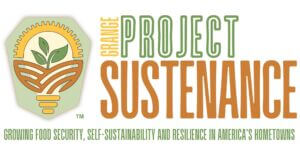
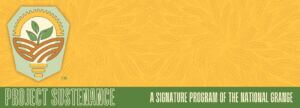
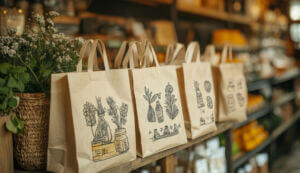 "Made in Our Town" Gift Boxes
"Made in Our Town" Gift Boxes Leadership Through Civic Art Projects
Leadership Through Civic Art Projects Buy Local Awareness Week
Buy Local Awareness Week Leadership Role Shadowing Program
Leadership Role Shadowing Program How to Lobby Effectively
How to Lobby Effectively Community Storytelling Nights
Community Storytelling Nights Leadership Book Club
Leadership Book Club DIY Emergency Water Filtration Kits
DIY Emergency Water Filtration Kits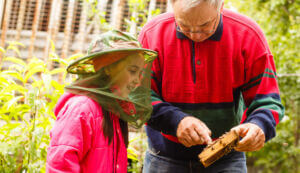 Backyard Beekeeping Classes
Backyard Beekeeping Classes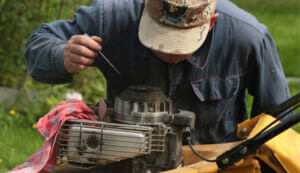 Repair Cafés
Repair Cafés Clothing and Food Swap Events
Clothing and Food Swap Events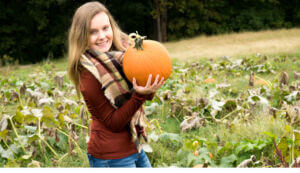 Youth Food Ambassadors
Youth Food Ambassadors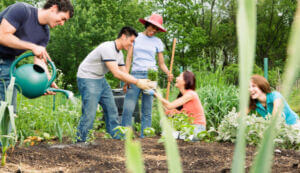 Garden Tool Drives
Garden Tool Drives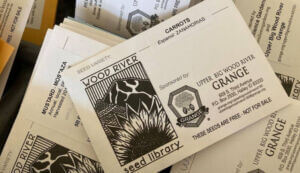 Seed Libraries
Seed Libraries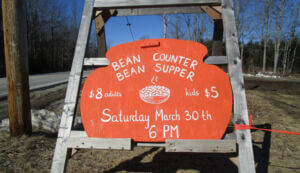 Low-Cost Community Dinners
Low-Cost Community Dinners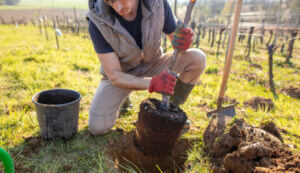 Fruit Tree Planting Drives
Fruit Tree Planting Drives Support Groups for Caregivers
Support Groups for Caregivers Wellness Fairs
Wellness Fairs Home Safety Inspections
Home Safety Inspections  Budget Cooking Competitions
Budget Cooking Competitions Healthy Cooking Classes
Healthy Cooking Classes Personal Budgeting Workshops
Personal Budgeting Workshops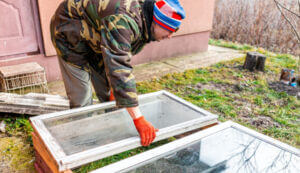 Winter Garden Projects
Winter Garden Projects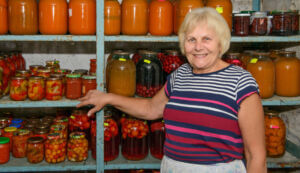 Root Cellar Workshops
Root Cellar Workshops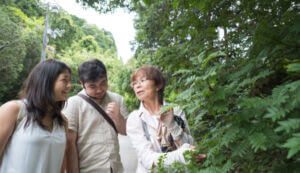 Edible Plant Tours
Edible Plant Tours Nutritional Education in Schools
Nutritional Education in Schools Emergency Food Kits
Emergency Food Kits Food Waste Reduction Programs
Food Waste Reduction Programs School Meal Assistance
School Meal Assistance